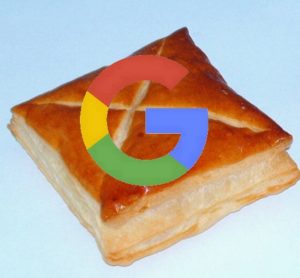At Dotcom-Monitor we agree with Google that “we think that internet users’ time is valuable, and that they shouldn’t have to wait long for a web page to load.” This was their opening message today when they announced the release of their new compression algorithm, Brotli. Brotli was named after a small bun in Switzerdeutsch (Swiss German). Google goes on to state that “The smaller compressed size allows for better space utilization and faster page loads.”
This release continues to support the fact that Google is committed to providing the mobile performance optimization. Google has stated that this is just another way they are trying to help the industry squeeze just a little more data to end users while optimizing data transfer fees as well as battery usage.
Is the Brotli Algorithm the Best?
What remains to be seen is whether the industry as a whole will agree with Google that the brotli algorithm is the best available and will be implemented in future browser versions. Google has published their own internal study comparing different algorithms here: ‘Comparison of Brotli, Deflate, Zopfli, LZMA, LZHAM and Bzip2 Compression Algorithms’.
The algorithm is open source, so I am sure the web compression and speed pundits will be voicing their opinions of the techniques used. From what Google has published, the algorithm is able to compress data at a higher density that several older algorithms while maintaining the same high speed rates of decompression, which is more important to the end users than the compression rate on the server side. Reading other studies we find that brotli has proven to be a positive improvement to WOFF 2.0 web fonts by decreasing font size by about 25%. They go on to describe that there are also significant improvements with additional elements such as javascript and css. Since javascript and css as well as web fonts play a key role in most websites today, this sounds like it should be a positive improvement on overall web page load speeds for the internet in general. One study quoted in the chromium.org discussion mentions decreased of css bytes by 17% and a decrease of 20% in javascript bytes when testing on facebook.
So what does this mean to the monitoring world? Well, as mentioned above, Brotli has already been implemented in Firefox and chrome for WOFF2, but it seems like it makes sense to implement for the additional elements based upon the test results with the facebook javascript and css size reductions. From what I understand, the downside may be slightly longer compression times, but in terms of a website- content is compressed once on the server side and decompressed many times on the client side, so it makes sense to go for the best compression density at the fastest decompression times.
At Dotcom-Monitor, we are always on the lookout for the latest technologies to help improve the performance of the web, and hope that all browsers will follow Google in their push to do so while maintaining a secure and crisp user experience.
If you want to see the difference pre- and post Brotli- setup a free account with Dotcom-Monitor to monitor the performance of your websites with and without Brotli today!
Next Website Performance Steps
Looking for performance optimization tips beyond compression? See the latest on mobile performance optimization to ensure your website is loading as fast as possible, across all device types.

